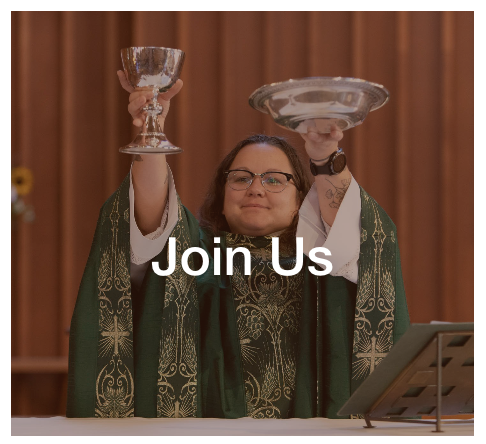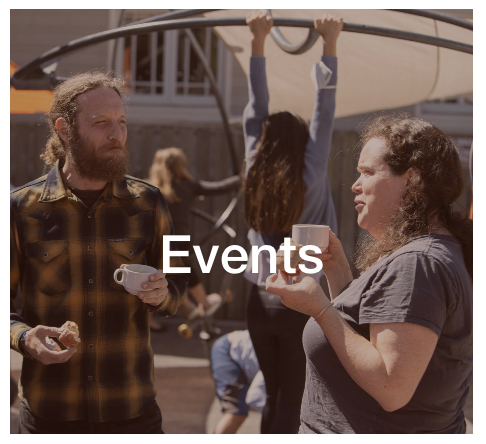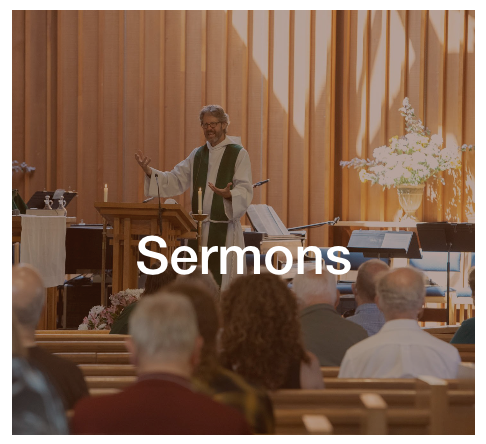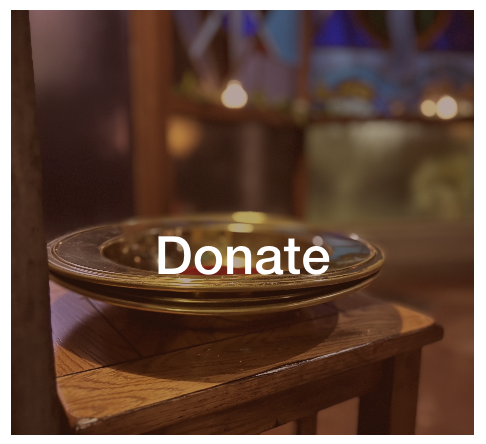The Pathfinder: June 20th, 2024
Reflections on the Graduate Theological Union
Since its origins, the Graduate Theological Union (GTU) has been a neighbor of All Souls, and it has been part of my life for over 40 years, first as a student, later as faculty and finally a member of the Board of Trustees. I want to reflect on the GTU in this particular moment in history, both as a consortium of schools and as a graduate program.
There was a certain genius in the formation of the GTU. As the member seminaries and theology graduate programs of several denominations chose to locate in this vicinity, many within walking distance of one another, the potential for something quite unique began to take root. It was the 1960s and ecumenical energy was palpable in post-Vatican 2 and Protestant communities alike. Franciscan, Dominican, Jesuit Lutheran, Presbyterian, American Baptist, Unitarian, and Episcopal faculties were eager to work together and to open their classrooms to students from the other schools.
Soon the dream came about to form a graduate program consisting primarily of senior faculty from each school, and that would draw ThD and PhD students who wished to study in an ecumenical and interdisciplinary environment that would include the University of California, Berkeley. The beauty of the program was that it drew students who were practicing members of their tradition (not always the case in graduate religious studies programs) and who wanted to engage in the critical academic study of the tradition at the same time. One bold step became key to the GTU’s future during this time: the member schools, out of commitment to this enterprise, combined their libraries to form one single library for all the member schools, housed at the corner of Ridge and LeConte. The effect was the creation of the largest theological library west of the Mississippi with one of the most diverse collections. The gift of each member school library was irrevocable, making the bond among the schools both spiritual and constitutional. Many scholars were produced out of this program who have served around the nation and beyond. And they served the seminaries while they were doing their studies–as classroom teachers, over meals with seminary students, and in the chapel life. Church Divinity School of the Pacific was a founding member of the GTU and an example of this rich interaction.
By the 21st century two features of change from the original model stand out in my mind. First, the GTU as a graduate program began to strengthen its focus on inter-religious graduate studies, now drawing an international student body and incorporating new schools and programs from a variety of the world’s religious traditions. This new emphasis at the GTU was exciting, and it expanded the horizons of each of the traditions participating. I can attest to how this enhanced our own students as they stretched to take classes from Jewish, Islamic, Buddhist faculty and more. This expansion helped them understand their own Christian identity in new ways.
Second, the nature of formation for ministry within the Christian seminaries of the GTU was changing. This had to do with revised curricula, but still more it had to do with new modes of educating. We witnessed a steady decline in seminary enrollments over at least three decades (true in all denominations and most seminary locations), but we also had evidence from some dioceses that calls to ministry were not being completely tapped by the residential model. There was a demand to adapt. By starting a hybrid model of online zoom classrooms (for which faculty were trained specifically in the pedagogy of this mode of delivery), and combining this with intensive residential experiences together at least twice a year, CDSP experimented with a new possibility. It proved to be successful beyond our imagining (in enrollments but also the quality of the overall program), and early in its life it received accreditation. Other seminaries experimented with other models. But, of course, every change comes at a cost. The formation of community life among the GTU schools diminished as non-residential models proliferated. First we lost the Franciscan school as it embedded itself in an academic/monastic setting in southern California, Then the Unitarian-Universalist school left the GTU to become a house of studies located at Mills College. Now CDSP has committed itself to its new model which has proven to be a gift to the Episcopal Church but also a loss to the GTU community. I’m not a prophet but I suspect the dynamic state of things has still not run its full course.
So historical change consists in losses and grief. After decades of involvement among member schools I have many wonderful memories, and share in the sadness which comes with change. But decisions have been made based on the best data available, and with bold vision. And we should look with hope about the future of the hybrid model. It continues to draw high caliber students who will be leaders, and the faculty continue to work together and grow in their capacity, now under the leadership of Dr. Fowl whose experience in new educational models makes him the ideal person to move this mode of theological education forward. There are, of course, pressures on the GTU as a graduate school as it continues its offering now with fewer financial and personnel resources from the member schools. This is a time of concern for the GTU and its future, and I hope and pray that it can make the imaginative adjustments necessary to continue its vocation in inter-religious graduate education in this dynamic era. Yes we’re dealing with an unpredictable moment that requires trust and loyalty to the things that matter to us.
–Mark+
Report from the Associate for Music Search Committee
The search committee has begun its consideration of applications for the position of Associate of Music at All Souls. Our next step is to do zoom interviews with the candidates we think have potential. Those will be happening of the next few weeks.
In the meantime, we wanted to share a summary of the responses to the music survey which 58 All Soulsians filled out! We thank you for your participation in this process. As one respondent said “I’ ve experience three Associates for Music in my time here, and each one brought something unique and valuable to the role. I’m open to whatever the next one will bring.” On the committee we are bringing that same open spirit to our search!
Summary of Responses
Question #1: Which of the following kinds of music have helped enrich your feeling of worship?
As you can see from the above chart, All Soulsians appreciate a variety of musical styles! 78% of respondents found that traditional hymns had “very much” helped to enrich their feeling of worship, 59% Angel Band songs, 67% chants, 55% Gospels/Spirituals, 43% contemporary hymns and 47% Songs from other cultures.
Question #2: Do you feel that choir anthems are offered too frequently, about right or not enough?
From this graph, we can see that in general the congregation feels that the proportion of congregational singing to choir numbers is about right with 12% feeling that they would like to hear more choral pieces.
Question #3: What kinds of music would you like to hear more often:
A large number of respondents asked for more use of the organ, especially preludes and postludes Renaissance, Baroque, and Classical, 20th century church composers. Roughly 20% of respondents asked for more Angel Band. A smaller number asked for traditional hymns, and for Gospel music. A handful of respondents asked for Contemporary music, early music, jazz, and Taize.
Question #4: What have you appreciated most about Dent Davidson’s musical leadership in the past two years?
The congregation loves Dent! Of particular relevance to our present work were his ability to creatively balance the different styles of music; they were pleased that he added jazz to the repertoire. The congregation appreciated feeling included and engaged in the service by Dent’s pre-service invitations. They were happy with his use of guest musicians and the fact that he made the choir feel like a community.
Question #5: What changes, if any, would you like to see in the music program?
The question about possible changes brought forth responses as varied as the congregation’s likes. Some felt we had strayed too far from traditional organ and hymns, while others thought the music was too difficult. Some people felt that the congregation could commit more resources to the music program (paid singers and instrumentalist). Several people offered opinions on psalm singing so that seems like an area that could use further discussion.
Question #6: What do you want the new Associate for Music to know about your likes and dislikes?
As one congregant put it, we're a congregation that loves to sing. People expressed a joy for all types of music that have been present, including the Angel Band’s offerings, Classical, contemporary, gospel, jazz, Taize, and music from various world cultures. There was a group who wanted to make sure classical music, organ, music, and traditional hymns happened at every service, though they also generally expressed appreciation for diverse music.
Question #7: Is there anything else you would like to say about the music program?
When asked for further comments, parishioners invariably praised the music program, appreciating that their experience has remained fairly stable through three music directors. It is clear that music is integral to worship at All Souls. Several respondents brought up the Angel Band, and generally had positive things to say about the instrumentation and diversity of music they provided, and a couple wanted to make sure youth were either directly involved, or their needs taken into consideration.
–Anne Yardley
Summer Book Club
Have you ever wondered what makes some people "supercommunicators"? Who among your friends and family are the people you turn to when you need to be understood, to be heard? Next month, let's embark on a journey to become better communicators ourselves and deepen our connections with each other. I'm excited to lead a three-week book group on Charles Duhigg's latest bestseller, Supercommunicators, and I invite you to join me in talking about talking with fellow All Soulsians.
When I first encountered Supercommunicators, I was struck by Duhigg's promise: "Anyone can learn to be a supercommunicator." Is that true? As a Stephen Minister at All Souls for the past six years, I've spent a lot of time pondering how we can become better communicators. Two years ago, our Stephen Ministers ran a life skills class focused on deep listening, and in many ways, this book group picks up on that theme. Duhigg's book is filled with stories; by sharing our own stories and examining the research together, we can learn and grow as a community.
As we read the book together, we'll naturally reflect on our own lifelong journeys of communication. I've had my share of challenges and triumphs, from the daily stress of not being able to speak English in kindergarten, which caused me to throw up each day, to navigating heated conversations (aka “consumer rage”) with customer service representatives. Through these experiences, I've learned time and again that effective communication is a skill that demands ongoing practice and patience. Moreover, as I advocate for better healthcare for my loved ones, I'm reminded of the critical importance of clear and empathetic communication, especially when powerful emotions are at play.
In Supercommunicators, Duhigg explores three types of conversations that he ties to the core questions of "What's This Really About?", "How Do We Feel?", and "Who Are We?" By engaging with these questions and practicing these types of conversations, we can develop our communication skills and gain a deeper understanding of ourselves and others.
So come join us for fun, thought-provoking sessions that may just change the way you think about communication! Let's accept Duhigg's challenge and work together to become supercommunicators, teaching each other to be better communicators, one conversation at a time.
Book: Supercommunicators: How to Unlock the Secret Language of Connection (Random House, 2024).
Reading Schedule: July 7 (pp. xi-75), July 14 (pp. 77-168), and July 21 (pp. 169-246) at 9:15am in the Jordan Court Community Room.
–Raymond Yee
Living Waters
We heard back from the city of Berkeley and learned that there is nothing of significance that we need to address within our building plans. Rather, some minor edits have been made to our plans so we are on track to receive the permit shortly. We will continue to keep everyone updated once we know more.
Thank you to everyone for your continued support and patience!
–Richard Lynch
Announcements & Events
Happening This Week
Worship This Sunday
8:00am, Holy Eucharist in Chapel
10:30am, sung Eucharist (click here to access the live stream)
Wednesday 9am Eucharist Service. Zoom will return at this link on June 26th.
Reading Between the Lines Bible Study, Sunday @ 7:00a. Click here to join by Zoom, or join them in-person in the Jordan Court Conference Room.
Young Adults Picnic Join us on Sunday at 12:30p (June 23), where the young adults group is hosting a potluck and games at Lake View Picnic Area in Tilden park. If you are in your 20s or 30s, we invite you to join us! For more information, reach out to Tommy and Lizzie Belgum at tommylbelgum@gmail.com.
Drop-in Writer’s Workshop. Join Jane Vandenburgh and many of your fellow writers from 12:30-2 on Sunday (6/23) in the Jordan Court Community Room.
Adult Formation
First Summer Book Group!
Join Jack Shoemaker and other All Soulsians this week for our first book group. Discussions will be held on June 9, 16, 23, and 30th at 9:15am in the Jordan Court Community Room.
Let’s begin at the beginning. Join us as we read Reading Genesis, the latest book from Marilynne Robinson. A recent review of this book calls her “one of the most influential Christian writers and public intellectuals alive today.” Come see if you agree. Her book includes the complete text of Genesis in the King James version, but feel free to read any translation you wish. We will imagine dividing our reading of the 50 chapters of Genesis into four parts, but our discussions of Robinson’s book may well discover a looser structure.
Other 2024 Book Groups:
July 7, 14, 21
Charles Duhigg, Supercommunicators: How to Unlock the Secret Language of Connection (Random House, 2024). Led by Raymond Yee.
July 28, August 4, 11
Steven Charleston, We Survived the End of the World: Lessons from Native America on Apocalypse and Hope (Broadleaf Books, 2021). Led by The Rev. Marguerite Judson.
Any questions? Contact Anne Yardley at ayardley@drew.edu
Children & Family
Big Sur Camping Trip Sign-ups Are Live! Any and all are invited to the annual church camping trip at the Santa Lucia Campground in Big Sur. The dates this year are July 19-21st and the cost is $45 per person (kids under 5 are free) and there is a $180 max for families. If cost is prohibitive, please just let us know and we’ll have you covered. Sign-up here!
Children’s Book Group While Sunday School is on a break for the summer, we are excited to offer a new form of fellowship for kids: children’s book groups! Fourth to sixth graders will read The Eyes and the Impossible by Dave Eggers. First to third graders will read The Secret of the Hidden Scrolls by M.J. Thomas. If you are interested in participating, please email Molly Nicol (molly.joan.nicol@gmail.com).
Look out for more info about Faithful Families and playground meet-ups this summer!
Sunday School Survey Parents— we are seeking your feedback to shape next year’s Sunday School! If your child took part in our program in any way, please fill out this survey. We’re grateful for your time and input!
Youth Program No Youth Group this week.
Justice & Peace
Collecting Backpacks for Young Immigrants We are assembling backpacks to support newly arrived immigrants that the Interfaith Movement for Human Integrity is hosting this summer at the University of San Francisco. There are 10 people from Venezuela, Ecuador, Guatemala, El Salvador and Mexico, including 3 women and 7 men. Folks range in age from 18-33 and most are single. With the help of 14 area congregations, they are applying for asylum or temporary protected status, finding longer term housing and work. Useful items for backpacks include dental care, socks, and other personal items. Please bring to All Souls on Sunday, June 30. Also, we could use any leads on work! Many folks are looking for informal jobs such as yard work, computer, cleaning, moving, painting, construction, landscape. For more information see or email Elena Ramirez: ivanelena2@yahoo.com
Boost the Vote! “…it is the church’s responsibility to help get souls to the polls.” - Presiding Bishop Michael Curry
The All Souls Justice and Peace team invites you to help increase voter turnout by writing letters, following these easy steps:
Pick up from church 20 individual names, addresses, paper, & envelopes
(The names come from Vote Forward’s analysis, identifying citizens in low voter turnout areas)
Write non-partisan notes to encourage voting
Add postage
Return to Janet or a church basket to be mailed on Vote Forwards’s assigned dates
Ask for 20 more…?
Contact Janet Chisholm, jgchisholm@aol.com to request materials or to ask questions.
Undergraduate Street Medicine Outreach Undergraduate Street Medicine Outreach (USMO) is a Cal student group that organizes outreach events every Saturday to bring food and resources to homeless encampments in Berkeley. Because these encampments are in resource deserts, they often lack access to quality food, medical services, and other resources which we try to facilitate through our many partnerships. All Souls has been supporting this effort through donation of menstrual hygiene products.
Now, USMO has invited us to take part in more direct outreach efforts, especially as USMO student volunteers are away for the summer. The USMO group meets on Saturdays at 12:10 pm at the West Circle on UC Berkeley's campus (location linked here). From there, they organize pick-up and delivery of food and supplies. If you would like to join in this effort, please contact Beth Christensen for details (beth.christensen@gmail.com). She will connect you to the USMO leadership team.
Finally, while menstrual hygiene products continue to be welcome, there is additional need for the following items:
Power banks
Phone chargers
Batteries
General hygiene and first aid products
Size 8 women’s shoes
You can drop off these items in the red donation bin in the narthex. Thank you!
Needs of the Community
Meal Train If you are in need of meals, or if you’d like to join this network to deliver food to others, please email Sarah Oneto at sarahoneto@gmail.com.
Everything Else
Notecards in the Narthex There are a few boxes filled with notecards located near the name tags. We would like to invite folks to take a look at these beautiful cards and take them home with you. Why not sprinkle some joy around with some handwritten notes to loved ones.
Flowers on Sundays at Church If you are interested in dedicating the flowers in the Church on Sunday mornings to a loved one or a particular remembrance, please fill out this form and indicate which day you would like to contribute the flowers and what you would like the dedication to say. The dedication will appear in our announcement sheet on the Sunday you have selected. The suggested contribution for flowers is $75, which can be paid to All Souls either electronically or by check (see the giving page on our website for more information there), and be sure to write in "flowers" in the memo line.
Please contact Maggie Cooke for any questions, dmcooke92@comcast.net.










